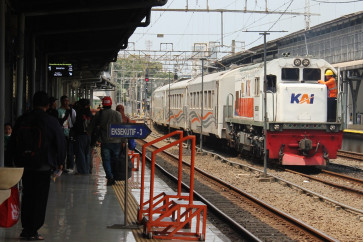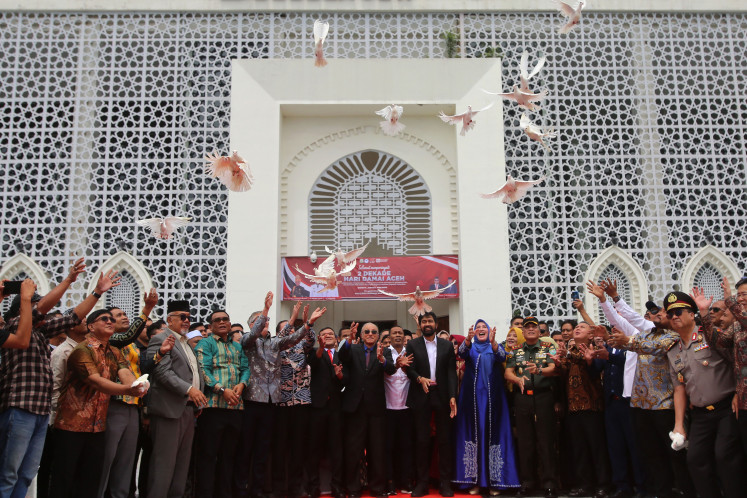Popular Reads
Top Results
Can't find what you're looking for?
View all search resultsPopular Reads
Top Results
Can't find what you're looking for?
View all search resultsFarmers told to grow mung beans during dry season
The administration of Cirebon, West Java, has suggested farmers, whose rice fields have been damaged by water shortages, to grow mung beans, which tend to be more resilient in dry weather, following a drought that has hit the province over the last few months
Change text size
Gift Premium Articles
to Anyone
T
he administration of Cirebon, West Java, has suggested farmers, whose rice fields have been damaged by water shortages, to grow mung beans, which tend to be more resilient in dry weather, following a drought that has hit the province over the last few months.
The Plantation, Agriculture and Husbandry Agency head, Ali Effendi, said that his agency would provide seedlings for farmers who wanted to grow mung beans during the dry season.
“We will procure high-quality seedlings for 10,000 hectares of rice fields which have been damaged due to drought,” said Ali, adding that growing mung beans would bring benefits for farmers.
If a farmer set aside Rp 3 million (US$317) to Rp 4 million per hectare, Ali said, he could harvest around 1.5 to 2 tons of mung beans.
“On the market, a kilogram of mung beans sells for between Rp 7,000 and Rp 9,000, so a farmer can get profits of Rp 7.5 million to Rp 10 million,” said Ali.
It is feared that failures in rice harvests will increase in Cirebon, one of West Java’s main rice production centers, as about 18,000 hectares of paddy fields have been hit by water shortages.
Last week, the extent of damaged rice crops had reached 10,000 hectares, or double the 5,000 hectares of the previous week. Around 12 districts have been affected by the drought.
Farmers in drought-affected areas warmly welcomed the administration’s suggestion of growing mung beans.
“Growing mung beans does not require a lot of water. This will certainly overcome the drought problem,” said Suja, a farmer in Arjawinangun district.
“If we insist on planting rice during this dry season, it will increase the production costs because we’ll have to rent water pumps to irrigate the fields. That doesn’t include the cost of tackling pests that tend to increase during dry weather,” he continued.
During the dry season, Suja said, the production cost of planting rice might reach Rp 4 million to 5 million per hectare.
“Renting a water pump is between Rp 500,000 and 600,000 per week on top of that,” he said.
Despite the drought, the Cirebon administration has expressed its optimism about meeting this year’s target of producing 540,000 tons of gabah, unhusked rice, which is equivalent to 350,000 tons of rice, by the end of 2012.
“In Cirebon regency, farmers can plant their rice fields about two to three times a year. Each hectare can produce around 6.1 to 6.9 tons of gabah. Therefore, we are optimistic that we can meet this year’s target,” said Ali, referring to the total of 50,000 hectares of farmland in the province.
Even though farmers might face harvest failures during the dry season, Ali went on, there was still a chance that they would make it up during the rainy season or in the last four months of the year.
“In the rainy season, the successful rate [of planting rice fields] tends to increase. Many farmers even harvest twice during the season. Therefore, we are still optimistic that we can meet the target,” he said.










